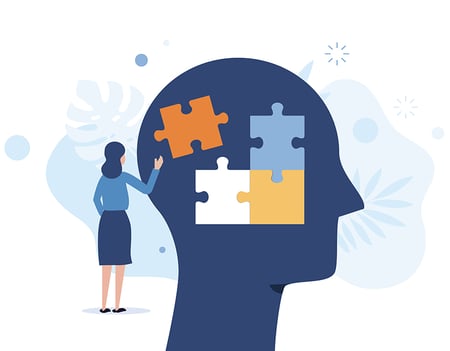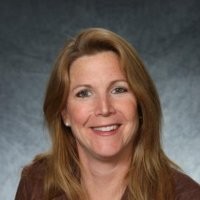In this article guest author Dr. Laurie Hazard shares her views to support students and deliver effective First-Year-Experience programs on campus. For more FYE resources, check out some of our recent webinars, including 'Mastering Executive Functioning Skills: A Key To Academic Success' featuring Dr. Laurie Hazard.
All First-Year Students Want to Be Successful: What’s Stopping Them?
Every year, millions of students arrive at colleges to begin their first-year transition. While the majority will experience a smooth transition, some will encounter a variety of challenges that they need to resolve. The students who are less prepared may face more pronounced difficulties as they adapt to the academic demands of college or the temptations of campus life. Some may effectively problem-solve and work through the pitfalls and challenges they face, while others may end up in academic difficulty or, even worse, on academic warning or probation. No first-year student goes off to college dreaming about failure. On the contrary, they aspire to make the dean’s list. So, what’s stopping them? Well, first-years don’t typically take the time to think about the difficulties they may encounter and anticipate how they might solve them when they arise. Student success professionals, parents, and families alike can help by encouraging students to reflect on their day-to-day experiences as they traverse their first year. As John Dewey, an American philosopher and educator, noted, “We don’t learn from experience; we learn from reflecting on our experience.”
“We don’t learn from experience;
we learn from reflecting on our experience.”
- John Dewey, philosopher and educator
First-years should be encouraged to reflect on their secondary education experiences and consider the challenges they faced and how they persevered through them. One concrete piece of advice for first-years is to have them examine their first-semester schedule. If they are taking courses like history or psychology with a heavy reading load, will they be able to handle it? How confident are they in their reading comprehension skills? If quantitative courses have always been challenging for them, how will they handle a math or computer science course on their schedule? What about their writing skills? Are they taking a composition course in the first semester? The next step is to think about the resources on campus that can help with challenges in their courses if they arise. Students will discover that faculty office hours and seeking out tutoring support can be beneficial in these instances. Instead of waiting for challenges to arise, be ready for them and know where to seek help. Psychologists call this approach anticipatory problem-solving, recognizing challenges and problems that may arise and preparing to face them. Early in the semester, teach students about anticipatory problem-solving.
Students who excel at anticipatory problem-solving possess a strong understanding of themselves, demonstrating intrapersonal skills—a dimension of emotional intelligence. Assure students that they can actively work to get to know themselves better. While students may feel that they know themselves fairly well, it’s important to remind them that being in a new environment, such as college, provides opportunities for growth. They will need to get to know themselves in the context of this new environment. Two psychological concepts that can help frame this discussion for your students are Carl Rogers’ phenomenal field and Albert Bandura’s reciprocal determinism.

Rogers uses the term “phenomenal field” to explain an individual’s self-concept, asserting that inherent in all of us is a drive towards health, such as students' motivation to be successful in college and make the dean’s list. Understanding what’s in our phenomenal field is key, as there may be conditions within it that interfere with growth. For students, identifying conditions that hinder their success in college is crucial. The phenomenal field comprises thoughts, feelings, attitudes, and behaviors, and students should delve into their phenomenal fields. They might be experiencing negative thought patterns, such as “Everyone here is so much smarter than I am; I am just not cut out for this.” Perhaps a behavior is getting in their way, like “I just can’t seem to stop procrastinating. I know this is a major problem, and I have no idea how to get out of this rut.” Rogers suggests removing obstacles that interfere with growth. How do we help students remove these obstacles? Student success professionals can work with students to identify and address these obstacles, mobilizing campus resources to support them. Conditions that interfere with growth and success, such as attitudes and feelings, come from inside the individual—internal factors. However, external factors, like an unhealthy relationship or a chaotic environment, also play a role. Students need to reflect on both internal and external factors. Bandura describes the relationship between internal and external factors as reciprocal determinism.
Individuals have the power to shape their environment, but the environment can also influence individuals’ behavior. Certainly, students can be affected by the new situations they encounter in college, but they also have the power to choose their behavior. Have students consider the scenario of attempting to study in their rooms when their hallmates are having a party on the floor, tempting them to join in the festivities. They can choose to party and skip studying, or they can remove themselves from the less-than-conducive environment for exam preparation.
Challenge students to consider how they might be influenced by the new environment in college. At the same time, encourage them to find balanced ways to engage with the new environment. To do so, they must consider the wide variety of influences in the new environment, such as friendships and the college culture, and how that might affect their college experience. Here is a simple tool to help them begin to analyze how these factors may organize and shape their experiences:
Internal Factors:Individual |
External Factors:Environmental |
Lack of “know-how” or knowledge |
Friends |
Lack of motivation |
Family |
Lack of interest |
Work |
Time and behavior management issues |
Co-Workers/Supervisor |
Procrastination habits |
Space and place |
Low confidence and self-efficacy |
Social media |
Negative attitudes |
Activities/Overscheduling |
For first-year experience courses, a simple classroom activity would be to ask students to consider whether any of these factors have created conditions that are interfering with their ability to be successful. Facilitate a discussion by asking students who aren’t meeting their goals: What is stopping them? Is it more internal factors, external factors, or both? The operating assumption is that all students want to be successful. Taking a psychoeducational approach and teaching students about the power of reflection, anticipatory problem-solving, the phenomenal field, and reciprocal determinism provides a framework to lead students to greater self-awareness and figure out what’s stopping them from achieving success and making the dean’s list.
About the Author
Dr. Laurie L. Hazard, Ed.D.
Founder, Recognize Your Potential
Educator, Counselor, Student Success Expert
www.lauriehazard.com
www.Offtoseries.com
Laurie Hazard is an award-winning educator and nationally recognized student success expert who researches how students make successful transitions from secondary to higher education. She studies and writes about student personality types, academic achievement, and classroom success. For more information on Laurie's speaking, writing, and consulting: www.lauriehazard.com.
